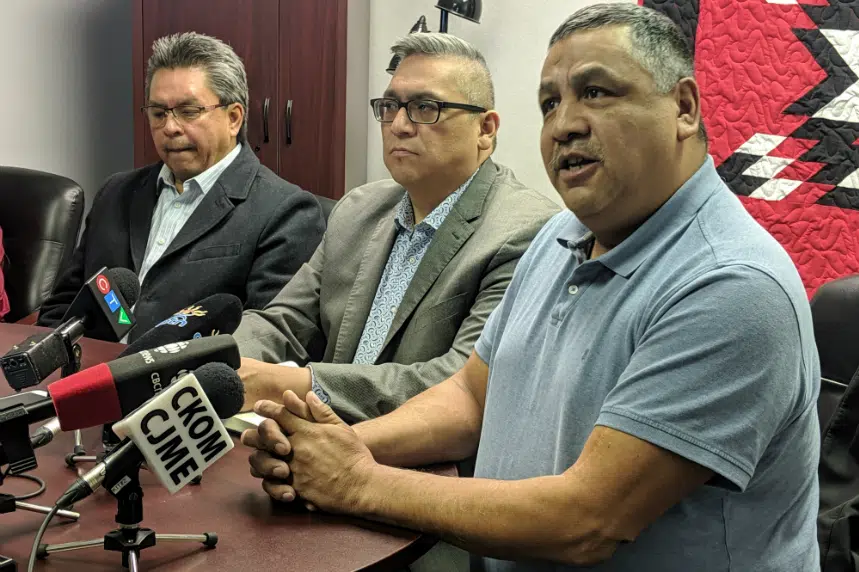The Federation of Sovereign Indigenous Nations (FSIN) is calling on both the provincial and federal governments for immediate action against the ongoing opioid crisis in Saskatchewan’s First Nations communities.
FSIN Vice-Chief David Pratt was joined by First Nations leaders from around the province at a news conference Tuesday afternoon.
Pratt called for funding for culturally based addictions treatment facilities. He referenced the Saulteaux Healing and Wellness Centre in Kamsack, Sask. as a viable starting point.
For now, he said First Nations people don’t have enough places to turn to.
“Waiting lists for treatment centres that are there — it’s become a revolving door,” he said. “They’re going in, being treated for an overdose, they’re out, they recover and they’re right back on the drugs.”There’s no supports and there’s no treatment facilities to take them in immediately.”
He also called for better linkages between hospitals and treatment centres.
“There should be an immediate intake right from the emergency wards right into a treatment facility.”
Pratt also mentioned the lack of monitoring when it comes to prescriptions, pointing to a Kamsack doctor who was charged with improperly prescribing opioids in March 2018.
“They’ll monitor and they’ll check if there’s a problem with braces… but they’re not monitoring opioids, yet it’s leading to more of a strain on the health system,” Pratt said. “And it’s only going to get worse unless something’s done now.”
Pratt acknowledged the province funding a program training emergency doctors on dealing with opioids, but said he wanted something “on the ground and in the communities.”
Kessekoose First Nation Chief Calvin Straightnose was among those who attended Tuesday’s press conference.
“My family is affected big-time by this crisis,” he said. “My nephew, he’s lonely for his mother and his dad because they both (overdosed).”
Straightnose said the opioid issue doesn’t seem to be getting much attention.
“It’s like nobody wants to address it or nobody wants to hear about it, but it’s time we’re heard as First Nations people,” Straightnose said “When do we start healing ourselves?”
Straightnose said the FSIN and the RCMP are doing everything they can, but more is needed.
“It’s time we face these problems together,” he said. “The provincial government and the federal government, I make that challenge that you guys step forward and help us.”
He said the situation is both a health problem and a public safety problem, with gangs moving in to exploit problems that have festered in many communities.
“If you’re in poverty, you have nothing to do all day — and I guarantee you, when you have nothing to do, you’re going to find something to do,” Straightnose said. “And that something to do is not very good right now.”











